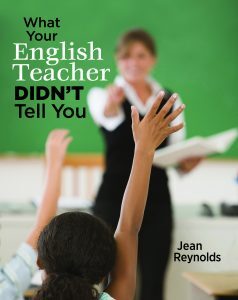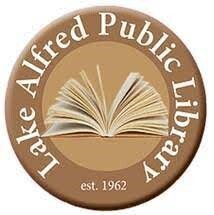Jean Reynolds's Blog, page 2
May 8, 2023
The @#$%&! Word “Had”
 Instant Quiz
Instant Quiz
Can you correct the error in the sentence below? Scroll to the bottom of today’s post for the answer.
Joe called Mary and Susan called Frank.
__________________________________________________________
Although I never met British writer C.S. Lewis (1898-1963), he was one of my most important teachers. I’ve read just about everything he published, and the lessons I learned have stayed with me.
So I was pleased to read a New York Times article by Sarah Hart, a mathematician who admires Lewis as much as I do. But one sentence in her article troubled me:
I went off to Oxford to study mathematics, very happy to be living one street away from the pub where my childhood literary heroes C.S. Lewis and J.R.R. Tolkien had met each week to discuss their work.
More accurately, one word bothered me: had. I struggle with had the way some writers struggle with commas. I put had in, and then I take it out, and then I try it again…a huge waste of time. Usually the “take it out” impulse wins.
You might be wondering why I don’t just look up the rule for had and be done with it. The answer, unfortunately, is that I’ve done that – in fact I’ve taught the “had” rule many times. Sometimes it doesn’t help.
You’re supposed to use had any time you’re writing about two different times in the past. “I did the laundry after I had eaten breakfast.” Easy enough, and I use that rule often. But sometimes had seems unnecessary. It would be more natural to write, “I did the laundry after I ate breakfast.”
I’m pleased to report that some editors agree with me. If an event obviously happened earlier in the past, you can omit that pesky had.
So there!

Photo of C.S. Lewis courtesy of Aronsyne (CC License)
______________________________________________________________________________
Instant Quiz ANSWER
This is a Comma Rule 2 sentence. Use a comma when you join two sentences with and.
Joe called Mary, and Susan called Frank. CORRECT
Notice what happens if you omit the comma. Your readers think that Joe called two people – Mary and Susan. They have to backtrack and read the sentence again.
Commas are easy to learn – and a big help to your readers!
What Your English Teacher Didn’t Tell You is available in paperback and Kindle formats from Amazon.com and other online booksellers.
“A useful resource for both students and professionals” – Jena L. Hawk, Ph.D., Mississippi Gulf Coast Community College
“Personable and readable…Jean knows her subject forwards and backwards.” – Adair Lara, author of Hold Me Close, Let Me Go
April 19, 2023
A Panda Goes Home
 Instant Quiz
Instant Quiz
Can you correct the error in the sentence below? Scroll to the bottom of today’s post for the answer.
Everyone said they had alot of fun at Beverly’s party.
________________________________________________________________________________
Ya Ya is a female panda who’s been living at the Memphis Zoo for 20 years. Some animal activists say that she should have been sent back to China many years ago. You can read about Ya Ya at this link: https://www.nytimes.com/2023/04/12/world/asia/panda-china-memphis-zoo-ya-ya.html
I’m glad Ya Ya is going home! But my subject today is something else – this headline from the print edition of the New York Times:
A Panda Homecoming Said to Be Long Overdue by Worried Activists
A grammarian would say that “by worried activists” is a misplaced modifier. In plain English, it’s awkwardly placed, sounding as if the worried activists are supposed to be the ones sending Ya Ya home to China.
A conventional editor would have changed it to this: Activists Are Worried about a Long-overdue Panda Homecoming.
But that’s not the solution I would have chosen. I think I know why the headline writer chose that awkward wording, and I would be inclined to leave it alone.
Here’s why: it’s a story about a panda, not a group of worried activists. The most important element of a sentence should usually go first in a sentence. (That’s an important writing principle called “emphasis.”)
If it were up to me, I would leave “A Panda Homecoming” at the beginning.
But there’s an even better solution, and that’s exactly what the Times did in their online edition. They rewrote the headline so that it made sense – while leaving the panda at the beginning. Here’s their revised headline:
A Panda Is Coming Home, and Her Chinese Fans Say It’s About TimeWelcome home, Ya Ya!

Ya Ya at the Memphis Zoo
Photo courtesy of Frank/Flickr CC License
________________________________________________________________________
Instant Quiz ANSWER
It’s more professional to write a lot as two words: a lot.
Everyone said they had a lot of fun at Beverly’s party.
What Your English Teacher Didn’t Tell You is available in paperback and Kindle formats from Amazon.com and other online booksellers.
“A useful resource for both students and professionals” – Jena L. Hawk, Ph.D., Mississippi Gulf Coast Community College
“Personable and readable…Jean knows her subject forwards and backwards.” – Adair Lara, author of Hold Me Close, Let Me Go
March 27, 2023
Making Writing Choices
 Instant Quiz
Instant Quiz
Can you correct the error in the sentence below? Scroll to the bottom of today’s post for the answer.
We said our good-byes, it was a sad moment.
_________________________________________________________________________________________
Recently my friend Mike Goronsky and I had an interesting discussion about the term expletive. I’ve always thought that an expletive was a swear word or vulgar expression. In 1974, when the Watergate story broke, President Richard Nixon released transcripts of taped conversations in the White House. Nixon often used swear words, and the transcription was full of notations like “expletive deleted.”
But thanks to Mike, I learned that expletive can also mean “an unnecessary word or phrase”: there is, it is, indeed, and so on. Getting rid of those lazy words can make your writing stronger:
There are going to be hundreds of people attending the party. WEAK
Hundreds of people will attend the party. STRONG
I’m sure many writing instructors routinely tell their students not to start sentences with there is and there are. It sounds like a sensible rule, doesn’t it?
But writing “by the rules” is risky. You’re relinquishing your power – letting a rule make the decisions instead of using your own eyes, ears, and brain.
Compare the two versions below. Which sounds stronger to you?
1. There are many opportunities for promotion.
2. Many opportunities exist for promotion.
I would choose #1. “Many opportunities exist…” turns me off. Exist is a weak verb.
You might disagree, and that’s fine. The point is that you’re processing the sentence yourself – listening to it carefully and making up your own mind. That’s what good writers do.
Rules are only guidelines.
I have another example. Some time ago my friend Jane Brumbaugh wrote a marvelous article about a community that came together to start their own library. Here’s her first sentence:
There was no library in Lake Alfred in 1961.
A writing textbook might tell you that this version is better:
Lake Alfred didn’t have a library in 1961.
Nope. I like Jane’s original sentence.
Who’s right? I don’t claim to be infallible. But here’s my reasoning: the most important word in that sentence is library. Starting the sentence with “Lake Alfred” sends the wrong message: this is going to be about a small town in Central Florida.
The article was about creating a library with practically no resources. I want the word library to be close to the beginning of the sentence.
It’s easy to forget how precisely our brains work. Tiny shifts in a sentence – even if they break a rule or two – can add power to your writing. Trust yourself!

_____________________________________________________________________________________________
Instant Quiz ANSWER
Today’s Quiz sentence is actually two sentences. (Here’s a handy rule for you: “If it starts with it, it’s a sentence.”)
Change the comma to a period or semicolon:
We said our good-byes. It was a sad moment. CORRECT
We said our good-byes; it was a sad moment. CORRECT
What Your English Teacher Didn’t Tell You is available in paperback and Kindle formats from Amazon.com and other online booksellers.
“A useful resource for both students and professionals” – Jena L. Hawk, Ph.D., Mississippi Gulf Coast Community College
“Personable and readable…Jean knows her subject forwards and backwards.” – Adair Lara, author of Hold Me Close, Let Me Go
March 20, 2023
A Rule about Apostrophes
Instant Quiz

Can you correct the error in the sentence below? Scroll to the bottom of today’s post for the answer.
For desert we all ordered strawberry shortcake.
I just read an article that clears up some confusing points about apostrophes. I wish I could say I’m pleased, but I’m not. I have a feeling I’m going to be cranky all day.
Here’s what’s bothering me: The author wants you to the term pronomial pronouns That’s supposed to help you remember a group of apostrophes that never get apostrophes: his, hers, yours, ours, theirs and its.
Why make apostrophes so complicated? I have a Ph.D. in English, and I can’t remember ever seeing the word pronomial before.
I’m going to suggest a much simpler way to learn how to use these pronouns. (And there’s a bonus – you’ll have a simple memory device if you need it later.)
Here it is: Think about the word his. No apostrophe, right?
All these pronouns (his, hers, yours, ours, theirs and its) work the same way: no apostrophe.
These examples are correct:
That book is his, not hers.
The dog buried his bone.
The dog buried its bone.
His is the blue Subaru.
Ours is the blue Subaru.
No apostrophes! Easy, isn’t it?

__________________________________________________________________________________________________

Instant Quiz ANSWER
If you missed today’s Quiz question, you’re in good company. I often struggle with double letters. Is it desert – or dessert?
Here’s a trick I use. When I have dessert, I always order coffee with two sugars. That helps me remember that I need two s’s. (A desert is a place that’s dry and arid .)
There’s an even easier trick: Turn on your spellchecker!
For dessert we all ordered strawberry shortcake. CORRECT
What Your English Teacher Didn’t Tell You is available in paperback and Kindle formats from Amazon.com and other online booksellers.
“A useful resource for both students and professionals” – Jena L. Hawk, Ph.D., Mississippi Gulf Coast Community College
“Personable and readable…Jean knows her subject forwards and backwards.” – Adair Lara, author of Hold Me Close, Let Me Go
February 22, 2023
Do You Need to be a Grammar Stickler?
 Instant Quiz
Instant Quiz
Can you correct the error in the sentence below? Scroll to the bottom of today’s post for the answer.
Linda told us that “she didn’t support the proposed policy about overtime compensation.”
________________________________________________________________________________
New College is an innovative institution in Sarasota, Florida. Here’s a headline about New College from a recent edition of the Sarasota Herald-Tribune.
 I like the headline, and I hope you do too. But there’s a problem!
I like the headline, and I hope you do too. But there’s a problem!
A grammar stickler might say that the headline is wrong. You can’t compare a salary to a university.
Here’s the supposedly correct version: “How does Richard Corcoran’s salary compare to that of other Florida universities?”
My response is…bosh. I hate that of, and I refuse to use it. It’s clumsy and unnatural – and unnecessary.
Take another look at today’s headline. Nobody who reads today’s headline about New College is going to be confused.
Grammar sticklers sometimes forget that our brains are superbly wired to process language. Sentences don’t need to be carefully balanced (despite what an overenthusiastic English teacher might have told us). Our brains happily figure out what’s going on.
Mary Norris – former copyeditor for The New Yorker magazine – found some dangling modifiers make more sense and read better if you don’t fix them.
A wise woman! We would do well to follow her lead.

Photo courtesy of Lawrence G. Miller
___________________________________________________________
Instant Quiz ANSWER
Today’s quiz sentence is an indirect statement. You need to remove the quotation marks:
Linda told us that she didn’t support the proposed policy about overtime compensation. CORRECT
Use quotation marks only when you’re writing exactly what someone said (a direct statement):
Linda said, “I don’t support the proposed policy about overtime compensation.” CORRECT
What Your English Teacher Didn’t Tell You is available in paperback and Kindle formats from Amazon.com and other online booksellers.
“A useful resource for both students and professionals” – Jena L. Hawk, Ph.D., Mississippi Gulf Coast Community College
“Personable and readable…Jean knows her subject forwards and backwards.” – Adair Lara, author of Hold Me Close, Let Me Go
February 17, 2023
Is Passive Voice Always Wrong?
 Instant Quiz
Instant Quiz
Can you correct the error in the sentence below? Scroll to the bottom of today’s post for the answer.
Joe inferred that I was lazy, but Sally quickly set him straight.
__________________________________________________________
Here’s a sentence I found on Grammarly (a platform where you can improve your language skills). I like it!
He is totally beguiling, and I’m bewitched.
But Grammarly says it’s a bad sentence: you’re supposed to avoid passive voice. I’m bewitched is passive because the sentence doesn’t tell you who did the bewitching.
Here’s Grammarly’s version:
He is totally beguiling, and he has bewitched me.
My reaction is…pfffft. I’ll agree that it’s a good sentence. But so was the original! “I’m bewitched” is strong. I can feel the witchcraft!
Sometimes grammar doesn’t matter. The sentence feels alive – and isn’t that what we want from our writing?
My oft-repeated advice still stands: be wary when someone throws a rule at you. Rules are only guidelines.
You have a lifetime of language experience. (So does everyone else!) You know – instantly – whether a sentence works or not. Trust yourself!

_____________________________________________________________________________________________
Instant Quiz ANSWER
Infer is a Sherlock Holmes action – using your brain to figure something out. “I inferred that Jane was angry when I heard the door slam.”
The word you need to day is imply, which means “hint” or “suggest.”
Joe implied that I was lazy, but Sally quickly set him straight. CORRECT
What Your English Teacher Didn’t Tell You is available in paperback and Kindle formats from Amazon.com and other online booksellers.
“A useful resource for both students and professionals” – Jena L. Hawk, Ph.D., Mississippi Gulf Coast Community College
“Personable and readable…Jean knows her subject forwards and backwards.” – Adair Lara, author of Hold Me Close, Let Me Go
February 13, 2023
Prepare to Be Shocked
 Instant Quiz
Instant Quiz
Can you correct the error in the sentence below? Scroll to the bottom of today’s post for the answer.
Dark chocolate contains small amounts of heavy metals that can effect your health.
_________________________________________________________
A few days ago I stopped by my local library to drop off some books. When I was getting ready, I remembered that we had some pencils that needed sharpening.
I put a rubber band around them and headed for the library – which, it turns out, does not have a pencil sharpener. Those pencils are still in my purse. @#$*%&!
Did that little anecdote offend you? Probably not. Pencil is such an innocent word that even kindergarten children use it.
But if you look up the etymology (origin) of pencil, you might be shocked. (The picture below might help you figure it out!)

Many lovers of English believe that we should avoid words that have an uncomfortable history.
For example, if you’re a Roman Catholic, you’re supposed to get angry when someone says “hocus pocus.” The reason? It’s believed to be a mocking reference to the holiest words in a Latin Mass. (But there are other possible origins of “hocus-pocus.” You can learn more here: https://en.wikipedia.org/wiki/Hocus-pocus)
Similarly gee, gosh, and golly may have started out as references to Jesus and God: if you use them to express dismay, you’re guilty of blasphemy.
It sounds like a valid academic argument. Shouldn’t we stick to the original meanings of words?
My answer is no – and many linguistics experts agree. It’s what the word means today that counts. (Yes, you can talk about a pencil!)
I have a favorite rebuttal when someone argues for the original meanings of words. Manuscript means “written by hand” in Latin. If you’re a professional writer, do you write your manuscripts by hand? Of course not! You use today’s meaning.
What’s most important is reminding ourselves that language is slippery. A word that bothers one person may seem perfectly okay to someone else. For example, I’ve been told that we shouldn’t say “master bedroom” because it evokes slavery. But it doesn’t have that association for me, and I have no problem with “master bedroom.”
On the other hand, there’s a church in my neighborhood that uses the term “overseer” instead of “pastor.” Umm – no. It’s not a word I would ever use. (Maybe I’ve read Gone with the Wind too many times!)
But many people are perfectly okay with “overseer.” For years I’ve been driving past a sign that announces the name of the “overseer” of that church. Nobody seems to have complained about it.
And that takes us to a larger point I want to make today. Language belongs to everybody. We need to be wary of anyone who lays down the law about a word, expression, or rule.
For many people, that’s an uncomfortable truth. Wouldn’t life be easier if we had one set of language rules? Yes, it would.
But the easy route isn’t always the best route. In the end, I’m grateful that we have the right to make up our own minds about how we’re going to use our wonderful language.
Of course problems are going to arise, and mistakes will happen. But I’ll gladly accept that risk (even though I’ve stumbled myself numerous times!). I’m proud to be an owner of the English language. I hope you are too.

Courtesy of John Keogh, CC License ________________________________________________________
The word needed for today’s sentence is affect:
Dark chocolate contains small amounts of heavy metals that can affect your health. CORRECT
But my fingers didn’t want to type “CORRECT” today. I would reject that sentence if it showed up in a student’s paper.
Those heavy metals in chocolate (it’s true, by the way) can be harmful, especially if you’re pregnant. Here’s a better version:
Dark chocolate contains small amounts of heavy metals that can be dangerous to your health. BETTER
What Your English Teacher Didn’t Tell You is available in paperback and Kindle formats from Amazon.com and other online booksellers.
“A useful resource for both students and professionals” – Jena L. Hawk, Ph.D., Mississippi Gulf Coast Community College
“Personable and readable…Jean knows her subject forwards and backwards.” – Adair Lara, author of Hold Me Close, Let Me Go
February 6, 2023
Robert Caro
 Instant Quiz
Instant Quiz
Can you correct the error in the sentence below? Scroll to the bottom of today’s post for the answer.
The sign announced that we were only two miles away from home, it was a welcome sight.
_________________________________________________________________________________________________
Robert Caro is one of our greatest nonfiction writers. For many years he’s been working on a multi-volume biography of Lyndon B. Johnson.
Below is a sentence from Caro’s account of the assassination of President John F. Kennedy. Lyndon Johnson (Kennedy’s vice-president) immediately became the US President. It’s a dramatic story, climaxing when Johnson took the oath of office on Air Force One, the official Presidential airplane.
It’s great writing, but that’s not why I’m posting it here. There’s something else that excited me: two words that I don’t think any other writer would have bothered with.
Can you figure out what they are?
Taking his wife, Lady Bird, by the arm to bring her along, Lyndon
Johnson walked over to the fence and started to follow the Kennedys, but
the faces remained turned, and the arms remained stretched, toward the
Kennedys, even after they had passed, and Johnson quickly moved back to
the gray convertible that had been rented for him.
Here are the two words: Lady Bird. (I don’t mind if you think I’m nuts!)
Almost anybody interested in reading Caro’s book would already know the name of Johnson’s wife. She was an amazing woman who was in the news all the time.
But Caro is an exceptional writer. You can almost hear his thoughts clicking: Lyndon died in 1973. Lady Bird died in 2007. Some readers today might not know who they were! Caro didn’t want anyone to be confused – not even for a second.
There’s a reason I’m so excited about this. (In case you’re wondering, I lived through the Kennedy and Johnson years. Yes, I knew her name was Lady Bird!)
The New Yorker (where this chapter was published) is my favorite magazine. But its writers have the annoying habit of mentioning a name and repeating it later – with no clue about who “Greg” or “Sam Smith” was. A brother? Childhood friend? Politician?
I can’t count the number of times I’ve had to backtrack to figure out who’s being talked about.
Great writers think about their readers, making tiny changes that most people wouldn’t even notice. The goal? Creating a pleasurable experience for their future readers.
Do you edit your work with your audience in mind? Do you look for opportunities to make reading easier for them?
[Source: “The Day L.B. J. Took Charge” by Robert A. Caro from The New Yorker, April 2, 2012. https://www.newyorker.com/magazine/2012/04/02/the-transition?utm_source=onsite-share&utm_medium=email&utm_campaign=onsite-share&utm_brand=the-new-yorker]

Robert Caro
_____________________________________________________________________________________________
Instant Quiz ANSWER
Today’s sentence is a comma splice. (You can also call it a run-on.)
Sentences have to end with periods (NOT commas). How do you know it’s a sentence? Here’s a good rule-of-thumb: sentences start with a person, place or thing.
Here’s what many people forget: IT is a thing. If it starts with it, it’s a sentence.
The sign announced that we were only two miles away from home. It was a welcome sight. CORRECT
A semicolon is the same as a period, so you can also do this. Fancy, isn’t it? (And easy!)
The sign announced that we were only two miles away from home; it was a welcome sight. CORRECT
What Your English Teacher Didn’t Tell You is available in paperback and Kindle formats from Amazon.com and other online booksellers.
“A useful resource for both students and professionals” – Jena L. Hawk, Ph.D., Mississippi Gulf Coast Community College
“Personable and readable…Jean knows her subject forwards and backwards.” – Adair Lara, author of Hold Me Close, Let Me Go
January 31, 2023
All about Copyright and Creative Commons
 Instant Quiz
Instant Quiz
Can you correct the error in the sentence below? Scroll to the bottom of today’s post for the answer.
That scarf compliments your jacket beautifully.
__________________________________________________________
Because I’m a Shaw scholar, 2020 was an important year for me. Shaw’s writings went out of copyright. I saved some money! I’ll explain how in a moment.
Sixty years after an author’s death, copyright protections expire. That means you can do anything with them. If you want to stage Shaw’s play Pygmalion as – say – a vampire story – go for it! It’s perfectly legal.
You should also know that anything published before 1926 is copyright free.
Here’s a sampling of writers and artists who have works that are out of copyright: William Faulkner, Louis Armstrong, Igor Stravinsky, Diane Arbus, Dorothy Parker, and A.A. Milne (author of the Winnie-the-Pooh books).
Let’s use Milne as an example. You can publish – and sell – the Winnie-the-Pooh books. You can turn them into cartoons and movies – anything you want. But be careful! The illustrator, E. H. Shepard, died in 1976. His Winnie the Pooh drawings are still copyrighted. You can’t use them without permission – and paying a fee.
If this sounds like a lot of legalese, it’s not. Last year I published a book about Bernard Shaw (Language and Metadrama in Major Barbara and Pygmalion: Shavian Sisters). In the past, I had to pay a fee to get permission to quote from his writings. But now everything is available to anyone to use, free.
And there’s more. Below is a painting I wanted to use in my book. Normally I’d have to pay a permissions fee to use it. (The Metropolitan Museum of Art owns the rights.)

Pygmalion and Galatea by Jean-Léon Gérôme courtesy of KGBO
But it’s out of copyright – hallelujah! It went into my book – in color – at no charge.
And there’s something else important going on. The Metropolitan (and many museums, galleries, and artists around the world) is supporting a movement to make art more widely available to the public. It’s called Creative Commons.
Notice, though, that the Creative Commons movement has rules. Many artists and photographers have generously made some of their works available at no charge. But you may be required to credit them. Always check the instructions (“license”) to see what the requirements are.
How do you find Creative Commons (often called CC) pictures? I use two strategies. One is looking up a subject in Wikipedia. Almost every picture they use has a CC license.
I also use Google frequently. Type your subject into the Google search box. Click Images. Click Tools. Click Creative Commons License, and free pictures will show up.
But beware. Copyrighted ads often show up. Don’t use those pictures! And carefully check the picture you want to use to make sure it has a CC License. Always look for the license requirements and follow them scrupulously.

Image courtesy of Peter Leth, CC License
_____________________________________________________________________________________________
Instant Quiz ANSWER
Compliment is the wrong word. A compliment is a statement of appreciation or praise.
The word you need today is complement. (Did you notice that it resembles the word complete?) Complement means to “complete” something or set it off.
That scarf complements your jacket beautifully. CORRECT
What Your English Teacher Didn’t Tell You is available in paperback and Kindle formats from Amazon.com and other online booksellers.
“A useful resource for both students and professionals” – Jena L. Hawk, Ph.D., Mississippi Gulf Coast Community College
“Personable and readable…Jean knows her subject forwards and backwards.” – Adair Lara, author of Hold Me Close, Let Me Go
December 16, 2022
Two Sentences to Think About
Instant Quiz
Can you improve the sentence below? Scroll to the bottom of today’s post for the answer.
This week we’re going to update the existing addresses in our customer database.
___________________________________________________________
If you’ve been reading my blog for a while, you know that I think formal grammar is a waste of time.
There’s a widespread belief that if you know grammar well, you’ll be able to solve every writing problem. I think that’s wrong, and I have an example for you today.
Take a look at these two sentences:
1. We need to inventory the bikes, scooters, and wagons stored in the annex.
2. We need to inventory the bikes, the scooters, and the wagons stored in the annex.
In #1, you know that everything – bikes, scooters, and wagons – is stored in the annex. But in #2 maybe only the wagons are stored in the annex – there’s no way to know.
I often hear from writers who are looking for an easy trick that will unravel a sentence problem. “If I move the comma, will that fix it?”
Usually my answer is sorry – no. Most of the time you’ll need to rewrite the sentence. Here’s my version of today’s sentence:
We need to inventory the bikes and scooters in the showroom and the wagons stored in the annex. BETTER

____________________________________________________________
Instant Quiz ANSWER
Omit existing. You can’t update an address that doesn’t exist! Make every word count.
This week we’re going to update the addresses in our customer database. BETTER
What Your English Teacher Didn’t Tell You is available in paperback and Kindle formats from Amazon.com and other online booksellers.
“A useful resource for both students and professionals” – Jena L. Hawk, Ph.D., Mississippi Gulf Coast Community College
“Personable and readable…Jean knows her subject forwards and backwards.” – Adair Lara, author of Hold Me Close, Let Me Go
Jean Reynolds's Blog
- Jean Reynolds's profile
- 2 followers





